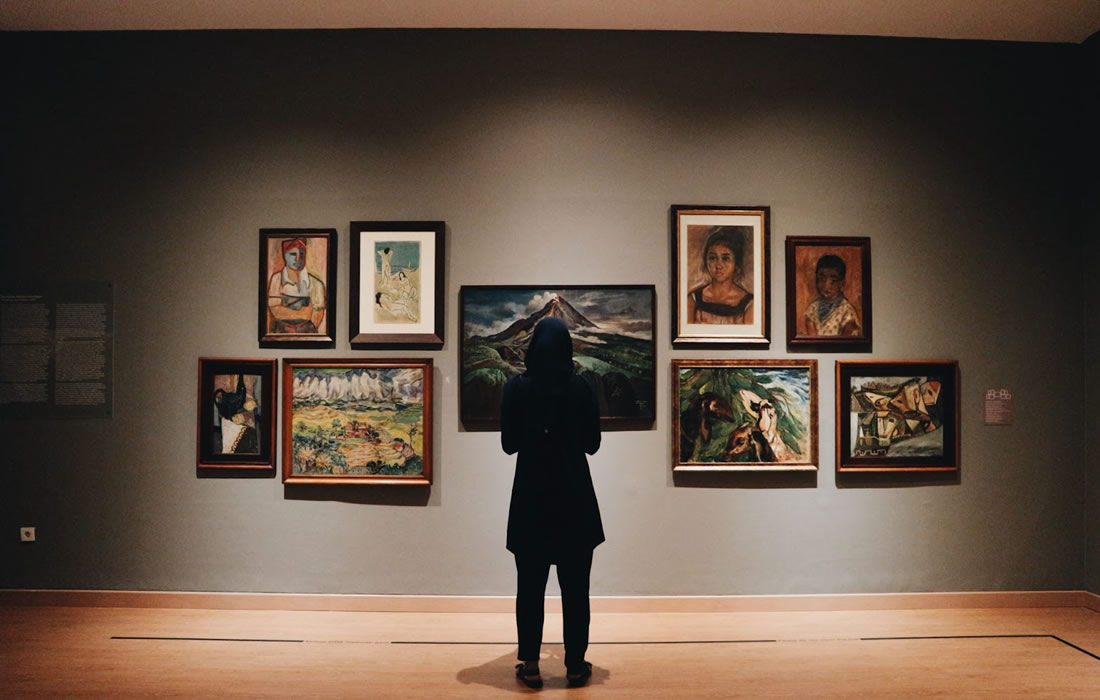Lifestyle
New Insights on Boosting Learning and Improving Mental Health
New research from Duke found that people who imagined being a thief scouting a virtual art museum in preparation for a heist were better at remembering the paintings they saw, compared to people who played the same computer game while imagining that they were executing the heist in-the-moment.
Alyssa Sinclair, Ph.D. M.D., recruited 420 adults to pretend to be art thieves for a day. The participants were then randomly assigned to one of two groups and received different backstories.
“For the urgent group, we told them, ‘You’re a master thief, you’re doing the heist right now. Steal as much as you can!’,” Sinclair said. “Whereas for the curious group, we told them they were a thief who’s scouting the museum to plan a future heist.”
After getting these different backstories, however, participants in the two groups played the exact same computer game, scored the exact same way. They explored an art museum with four colored doors, representing different rooms, and clicked on a door to reveal a painting from the room and its value. Some rooms held more valuable collections of art. No matter which scenario they were pretending to be in, everyone earned real bonus money by finding more valuable paintings.
The impact of this difference in mindset was most apparent the following day. When participants logged back in, they were met with a pop quiz about whether they could recognize 175 different paintings. If participants flagged a painting as familiar, they also had to recall how much it was worth.
“The curious group participants who imagined planning a heist had better memories the next day,” Sinclair said. “They correctly recognized more paintings. They remembered how much each painting was worth. And reward boosted memory, so valuable paintings were more likely to be remembered. But we didn’t see that in the urgent group of participants who imagined executing the heist.”
Urgent group participants, however, had a different advantage. They were better at figuring out which doors hid more expensive pieces, and as a result snagged more high value paintings.
“It’s valuable to learn which mode is adaptive in a given moment and use it strategically,” Dr. Adcock said.
For example, being in an urgent, high-pressure mode might be the best option for a short-term problem.
For encouraging long-term memory or action, stressing people out is less effective.
Sinclair and Wang are now following up on these findings to see how urgency and curiosity activate different parts of the brain. Early evidence suggests that, by engaging the amygdala, an almond-shaped brain region best known for its role in fear memory, “urgent mode” helps form focused, efficient memories. Curious exploration, however, seems to shuttle the learning-enhancing neurochemical dopamine to the hippocampus, a brain region crucial for forming detailed long-term memories.
These thought exercises may give people the ability to manipulate their own neurochemical spigots and develop “psychological maneuvers,” or cues that act similar to pharmaceuticals, Dr. Adcock explained.
Sources:
Alyssa H. Sinclair, Yuxi C. Wang, R. Alison Adcock. Instructed motivational states bias reinforcement learning and memory formation. Proceedings of the National Academy of Sciences, 2023; 120 (31) DOI: 10.1073/pnas.2304881120
Duke University. “One simple brain hack might boost learning and improve mental health: Curiosity supercharges people’s memory for paintings they saw while pretending to be an art thief.” ScienceDaily. ScienceDaily, 25 July 2023. <www.sciencedaily.com/releases/2023/07/230725171940.htm>.
Images from:
Photo by zalfa Imani
https://unsplash.com/photos/1xp5VxvyKL0

